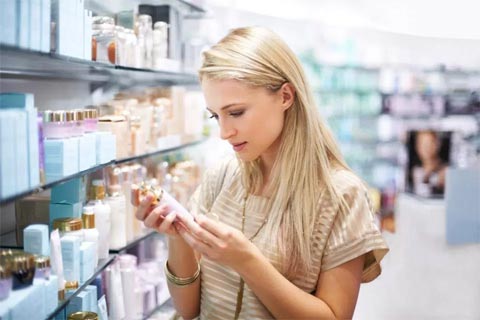Harmful chemicals in cosmetics may affect fertility in women, say experts
Posted on: 22/Jan/2018 3:49:45 PM

Experts have opened up about the rise in the use of cosmetic products that often contain a number of chemicals and have raised concerns regarding their potential side effects.
According to the experts, various cosmetic products nail polish, anti-ageing creams, anti-bacterial soaps, hair sprays and perfumes have a severe effect on the fertility of the females due to the toxic chemicals that are present in them.
A senior gynaecologist says, In the recent years, several endocrine disrupting chemicals have been identified to affect abnormal ovarian function, miscarriages and female infertility. Soaps, the supreme germ killer, but antibacterial soap can also kill your chances of conceiving. Antibacterial soaps contain chemical triclosan which is linked to endocrine disruption that messes up with your hormones and interfere with the reproductive system. Not just soaps, commonly used hair products like shampoos and conditioners containing parabens can impact hormones and reproductive system of the females. Parabens are a type of preservative (soaps, shampoos and conditioner) used to prevent the growth of bacteria. But too much of it can have an impact on fertility. When hormones are out of balance, the chances of creating healthy eggs or healthy sperm is reduced.
An IVF expert says, Polish removers contain toxic chemicals too including acetone, methyl methacrylate, toluene, and ethyl acetate. The most commonly used chemical is a solvent named toluene which is often used in cosmetics for getting a glossy finish. This chemical is known to affect the Central Nervous System (CNS) and harm to the reproductive system. So, we need to give a thought about the safety of the products before we use them. Excess use of cosmetics can be disastrous to pregnancy and the chances of conceiving may reduce drastically owing to their serious effects on reproductive environment. Though IVF treatments help in conceiving, avoiding the use of such chemicals is advisable, as even after conception, continued excess usage can cause miscarriage and birth defects.







